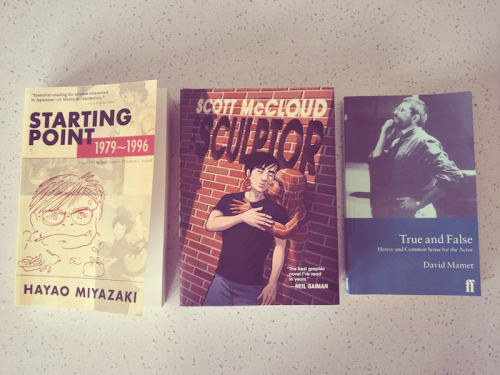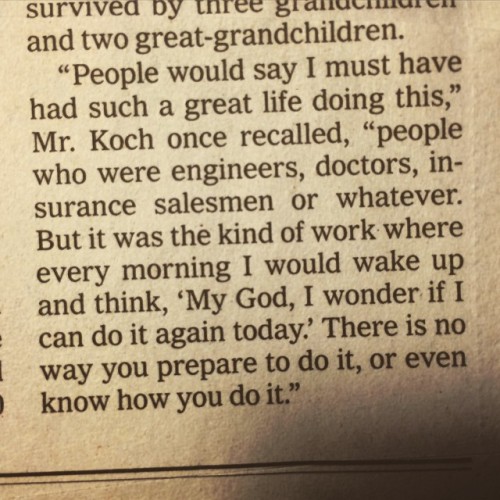What are we as filmmakers doing with these radical freedoms? Lars von Trier and the Dogme posse played with them, and the Arab spring protestors ran with them but, for many filmmakers, the freedoms have come so fast that they’re daunted. They’re still working out what they mean. The door of the prison cell has been flung open but, as if we have Stockholm Syndrome, some filmmakers are hovering at its threshold, intimidated by the vastness of what lies outside, its lack of boundaries or support.
delve
Fascinating Video Essays
[Works of art] that I really respond to …have behind them a lot of conceptual, political, and intellectual activity…the visual representations are really signposts to this beautiful machine that has been constructed, unique on the earth, and is not just a rehashing of visual elements, but is really a new thought machine that an artist, through visual means and combining his eyes with his perceptions has created.
Here’s a new video essay I’ve been working on this summer, published by Fusion.
It explores the idea of the Universal Basic Income, a future where the government pays citizens just for being alive, regardless of whether they have a job.
And it touches on the nature of work and the meaning it brings into our lives.

austinkleon:
Jason Segel on being okay with being bad until you’re good:
I’m willing to be bad for as long as it takes, until I’m good….I don’t have a sense of shame. I just don’t. If I’ve hurt someone’s feelings, if I’m mean to somebody, I’ll lament over that for days. I’m that dude. I’ll lose sleep over mundane stuff. But I don’t really have the thing of, “Oh, I’ve embarrassed myself.” I just don’t understand why I would stop trying to play piano even though I’m not good at it. I want to be good at it. So why wouldn’t I keep playing?Just. Keep. Working.
Remember: ✓ curiosity ✓ kindness ✓stamina ✓ a willingness to look stupid.
Essential summer reading.
Nowadays we can watch more than enough animation anytime we want. But no matter how good the animation is, when we have too much, it is no longer of good quality…it takes a great deal of effort to create significant work given the current flood of animation. It is like pouring clear water drop by drop into the muddy flood waters. I can’t help but feel lonely that, just because it is such an effort, some decide to settle for sending out mediocre work to be pushed along with the rest of the deluge.
I’ve spent the last few days in the film archives searching for imagery for the next video essay.
And I stumbled on some amazing futuristic landscapes - as well as some wonderful colours.
Technology and The Evolution of Storytelling
A really insightful speech from Pixar director John Lasseter about using the technology that interests you for its strengths.
The kind of shots you can get from an iPhone that you cannot get with any other camera. Use it.
GoPros: use it. Be inspired by it.
Try things. It’s digital. Get another memory card, for God’s sake.
You will start creating ideas that lend themselves to these things and start looking new.
What shines through is his and Pixar’s commitment to story at all times. He says it trumps technology…but declines to share any knowledge about narrative himself.
Illusions by Animal
One of the most perfect interpretations of the video essay I have seen. A visual idea, conveyed almost purely through imagery, with the enchanting voice of Bingo O'Malley whispering poetry in your ear.
Even better, this is just episode one of eight.
What Are These Things Called Love? Transcript
My latest video essay collaboration with Fusion was published last week.
Subscribers to the newsletter will know it’s been a challenging story. Here is the final version of the script (version number 7!)
What Are These Things Called Love? Words: Adam Westbrook
It’s one of the most popular and powerful stories of our time …that in a universe of immeasurable size…in a galaxy filled with 300 billion stars….on one of millions of planets that can sustain life…filled with 7 billion human beings… living in 2800 cities in 196 countries…that among all this…we will all…one day…meet our soul-mate.
And if you don’t believe it, then you’re the minority.
I saw one survey that said that 84 percent of young Americans believe The One is out there somewhere.
Look at Google’s archive of books and you see the word has exploded in popularity in the last 100 years.
But go back before 1900 and the word is hardly used at all…and you know why? Because it didn’t exist!
This guy - Samuel Taylor Coleridge - invented it in 1822.
So the word isn’t even 200 years old but 84 percent of us are so certain the concept’s real.
But love it turns out is a little bit more complicated…
Here’s a tender scene from one of the oldest love stories ever told. On the right is Achilles - the mythical warrior and the tragic love story between him and Petraculus is central to the plot of Homer’s epic poem The Illiad.
But there’s a great twist…something that didn’t get repeated for a long time…because Petraculus you might have noticed…is a dude.
People still argue about whether there was anything sexual between these guys, but really it doesn’t matter - the bromance was real.
And in ancient greece - a country pretty much always at war - the bond between brothers in arms was what really mattered.
People still fell in love…but romance as we know it..it’s hard to imagine but it really didn’t exist at all..and it certainly wasn’t celebrated.
That is, until a new love story came along…
So there’s this guy called William of Aquitaine…he was a Duke in the south of france in the middle ages… but when he wasn’t jousting he fancied himself as a Troubadour - a sort of medieval singer/songwriter.
And his songs sound nice enough…but they were mostly about tricking women into having sex with him, or comparing them to horses. Charming.
Then - probably stealing ideas from some Arabic poetry which was popular at the time - he switched the roles and made the woman the powerful character - so desirable any man would dedicate his life to her.
For the first time (in the West anyway) the idea of romantic love between a man and a woman became an ideal - a fantasy.. from Rapunzel to Romeo and Juliet love stories celebrated men pursuing unattainable women.
So yes, our entire idea of romance was invented by a sexist douchebag.
But now the love stories we told looked completely different…and the bromance the greeks believed in..well that was made illegal for a very long time.
Society now celebrated love and romance - with anyone really…as long as they weren’t your husband or wife!
Yes, as strange as it sounds, for most of history marriages have been more like a business arrangement, and you didn’t want feelings to get in the way.
These are wedding portraits amazingly and they’re not exactly full of passion.
Then a Dutch artist called Frans Hals painted this. And it tells us everything about how marriage changed.
Couples married for love, they held hands and kissed in public -things that had never been seen in Europe before.
Right, but then it changed again!
Because nearly 700 years later, Europe was obsessed with a novel about a young artist who falls in love with his friend Charlotte.
The only problem - and I’m sure you’ve heard this one before - is that Charlotte is already engaged to someone else
The young artist’s solution to the problem has a big impact - literally.
The Sorrows of Young Werther published by Wolfgang von Goethe in 1744 was like 50 Shades of Grey without the handcuffs. It was insanely popular - men started dressing like the main character - and some even shot themselves, in what’s considered to be the first case of copycat suicides in history.
This all helped launch the romantic movement - the most passionate but also dark version of love we’d ever seen. We assume the romantic movement was - well, romantic, but the reality was different.
Gave us some of our best art though - Keats, Beethoven, Blake…and a young poet called Samuel Taylor Coleridge, who in 1822 wrote in a letter to a friend: “To be happy in married life, one must have…a soul mate.”
We think the concept of love is something eternal and universal…but it changes all the time!
And it’s funny… each time, it seems to come from the stories we’re telling…
And isn’t that more true NOW than ever…?
Unlike epic poems or novels, movies and TV shows work best with simple stories…
And while the idea of romance has been around for a long time, now it’s been transformed into the most simple and idealistic version of all.
And now we expect our lover, our best friend, our companion AND the best sex we ever had…in one person!
Thing is…it’s not just movies…
For a hundred years companies have used this story to sell us things…
And in our age of consumerism we’ve somehow turned love itself into a shopping trip…
Swipe left, swipe right…always keeping our eyes open for an upgrade..
But with such simple and idealistic expectations are putting too much pressure on other people? And on ourselves?
So our version of love is not the first, and you know what, it’s probably not the last..
In a hundred years we might be telling a completely different love story - all we’re waiting for, is for someone to write it.
I’m very happy to share a brand new video essay that I have been working on in collaboration with Fusion.
It’s a short history of love, from ancient Greece to the modern rom-com and asks if it’s time to invent a new kind of love for the 21st century.
It’s packed with some bizarre stories about how people thought of love in the past, including the french sexist who invented romance, and the book that sparked the first ever case of copycat suicides.
Do you believe in soul mates?
Hitchcock’s Constructionist
I love reading up on Hitchcock’s technique, he was such a diligent craftsman.
Today I learned he would often employ what he called a constructionist - a term I have never heard anyone else use in the film industry. This was a person solely responsible for the construction of a story - the story design!
One of his early collaborators was the playwright Charles Bennett. In Bennett’s own words:
“Possibly, I suppose, I was the best-known constructionist in the world at that time. I am not being conceited but I was awfully bloody good. I was a first class constructionist. I’m not saying I was the best dialogue writer in the world. Sometimes we had to bring in dialogue writers.
“…But the important thing - and Hitch always knew this - was construction. Get your story, get your architecture right, and you can always add your dialogue afterwards. That was always the Hitchcock attitude right up to the day of his death.”
It seems that in the early studio system, screenwriting was almost split into three roles: a story designer (constructionist) who would build the narrative and the key events; the director (or storyboard artist) who would visualise each event; and then a dialogue writer who would add lines where the images could not themselves convey the idea.
Now these seem to have been blurred into one, but what a wonderful way to work.
Also, props to Bennett for this exchange:
Interviewer: All this foolery with credits didn’t bother you in those days?
Bennett: Nothing bothered me in those days. I was young and very good looking.
Fiction and nonfiction share two essential elements—imagination and emotion—and that’s where the use of reenactments in documentaries betrays the filmmaker. The essence of imagination is seeing what isn’t there—getting an idea on the basis of another idea—and the reenactment is, for the most part, a short-circuiting of imagination.
In “The Jinx,” whatever chill might be aroused by the notion of plastic bags filled with Morris Black’s body parts floating in a bay is dispelled by the actual vision of some other plastic bags, procured and filled and tossed on Jarecki’s behalf and filmed by Jarecki…
Such reenactments are insults to the audience—they assume that audiences can’t imagine anything like what the filmmaker is getting at—and they reflect the filmmaker’s own sense of impotence to create, by the assemblage of nonfiction material, an idea of what he has in mind. It’s a lack of confidence not just in the assembled material but in his own creative power.
Want to be an artist? Watch Groundhog Day.
“We spend so much time in this culture celebrating fast, early success, but in so many ways, early success is the worst thing that can happen to you.”
Reminds me of The Long Game.
The last paragraph of comedy writer Tom Koch’s obit was staring at me when I sat down at my desk to work today.
cf. Ian Svenonius:
If one becomes a lawyer, scholar, mechanist, typist, scientist, production assistant, or what-have-you, the world will commend your decision. Each day at lunch, on vacation, or at whatever party you attend, your choice will be applauded, upheld, and affirmed. And you will know what is expected of you. Even if your job is difficult—if you are a brain chemist, international death merchant, or rocket designer—your responsibilities will be obvious and your goals concrete. If you achieve them, you may be rewarded by promotion. If you fail, you might be fired or demoted, but nonetheless—unless your boss is insane—the job will have tangible parameters.
[Art], however, is different. You will never know exactly what you must do, it will never be enough… no matter what change you achieve, you will most likely see no dividend from it. And even after you have achieved greatness, the infinitesimal cadre who even noticed will ask, “What next?”
One solution: chain-smoking.
(Source: igcdn-photos-g-a.akamaihd.net)

